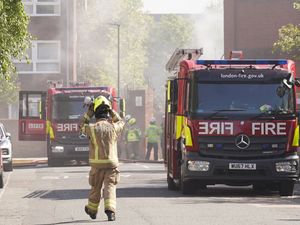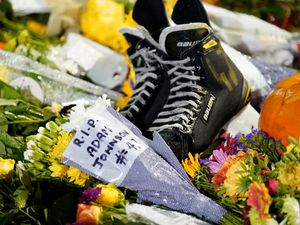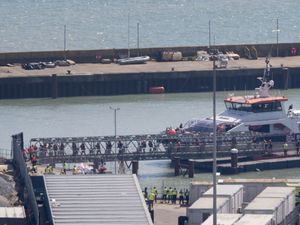Amphibious vehicle has final checks in Liverpool with dock tours set to return
Splash Tours Liverpool is due to begin operating within weeks.
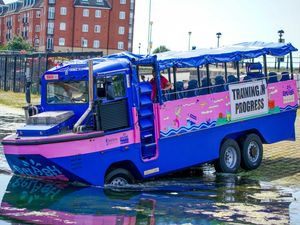
An amphibious vehicle has taken to the waters around Liverpool as final checks are carried out before tours return to the city.
Splash Tours Liverpool will launch within weeks, offering visitors a trip on land around some of the area’s best known sights, including the Royal Liver Building, the two cathedrals and St George’s Hall, before taking to the water in the docks.
The launch comes more than 10 years after Yellow Duckmarine tours were grounded when an amphibious vehicle sank in Liverpool’s Salthouse Dock, leaving 33 passengers to swim to safety or be rescued.
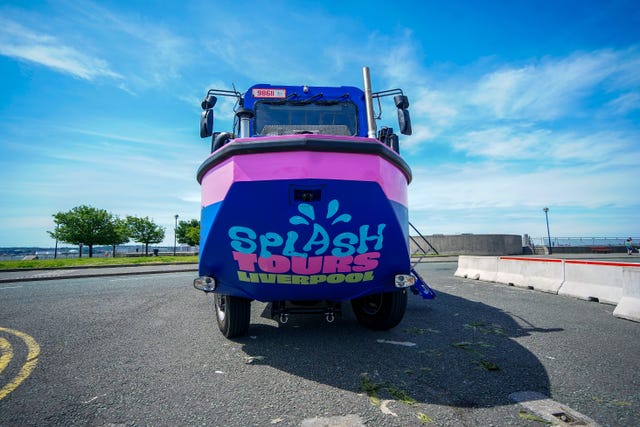
The new operator will use a purpose-built amphibious vehicle which took its first dip in the docks for an in-water survey at Liverpool Marina on Friday.
The blue and pink six-wheeled vehicle displayed “training in progress” signs as it was tested ahead of the official launch.
Splash Tours Liverpool, operated by the Lumley family, runs a similar operation in Windsor and, under its manufacturing arm Seahorse Amphibious, is the only company in Europe to manufacture and operate its own amphibious vehicles.
It says the new vessel is the result of seven years of development, uses the latest technology and is compliant with all safety laws.
Splash Tours Liverpool co-founder Ed Lumley said: “We cannot wait to launch Splash Tours in one of the world’s most exhilarating and dynamic cities, allowing visitors to experience Liverpool from two very different perspectives – from its fabled streets, which tell a story or two, to its iconic and world-famous waterfront.”
Sean Morrison, estate manager at Royal Albert Dock, said: “In a city steeped with history, we’re delighted to be part of a unique experience that allows visitors to immerse themselves in Liverpool and provides an exciting opportunity to see the iconic waterfront like never before.”
The Yellow Duckmarine, which was a DUKW amphibious vehicle, sank in Salthouse Dock in June 2013 and later that year there was a fire on a similar vehicle in the River Thames in London.
There were no serious injuries in either incident but a report from the Marine Accident Investigation Branch (MAIB) recommended the DUKW vehicles, originally used by military in the Second World War, should not not used again until problems with buoyancy foam were resolved.

